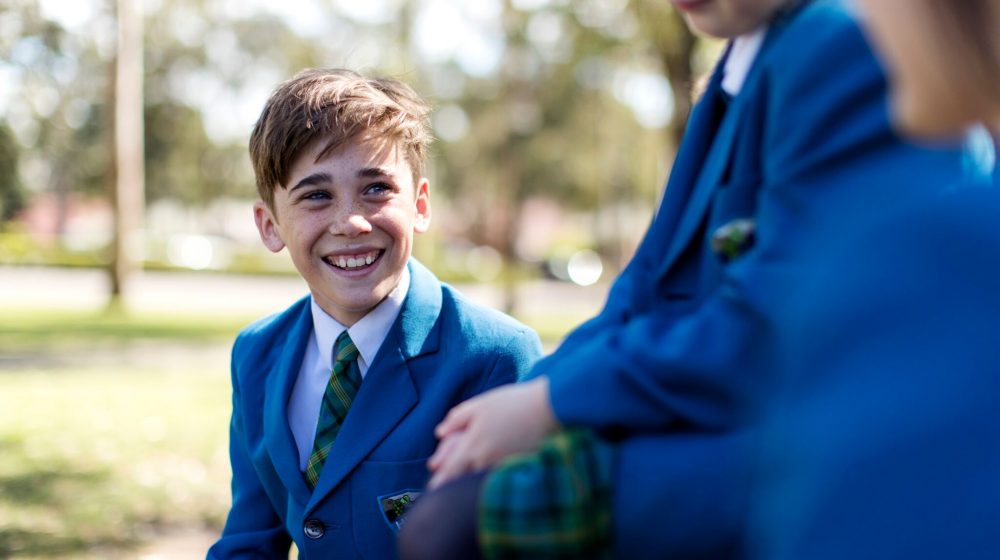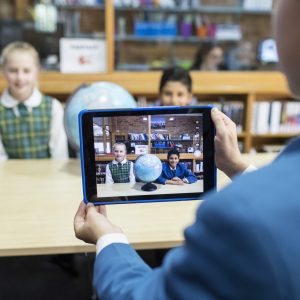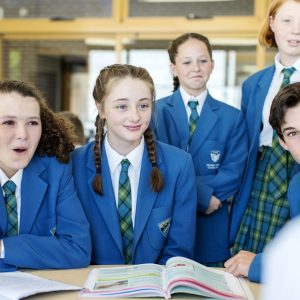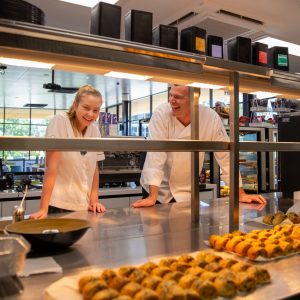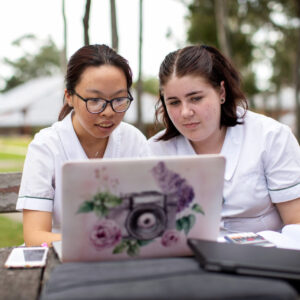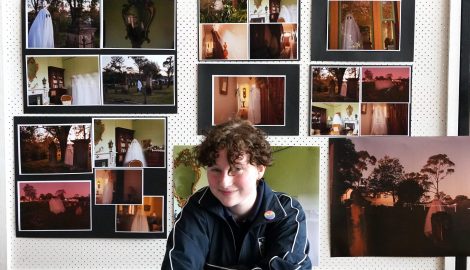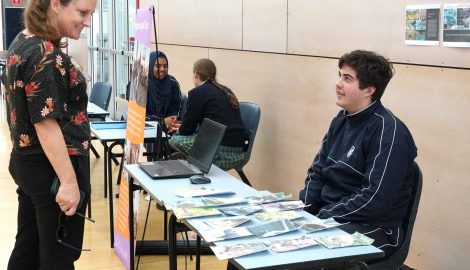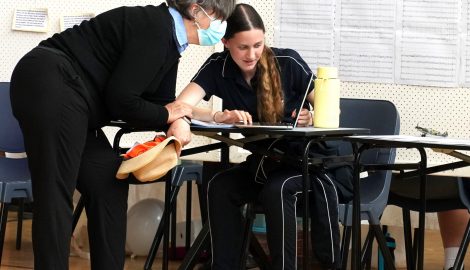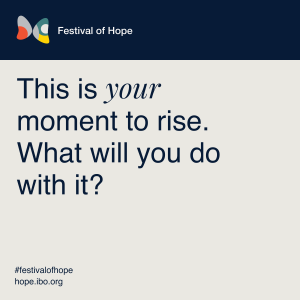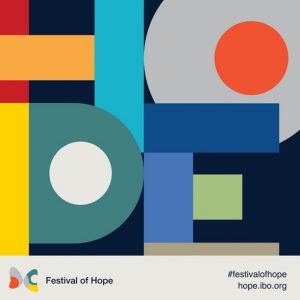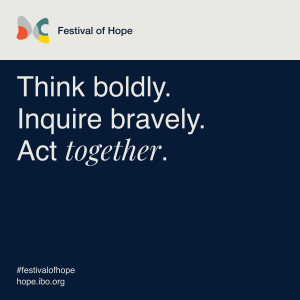Our children are faced with an increasingly challenging world. For students to navigate a complex and ever changing society, it’s important they see themselves as global citizens who are open-minded, thinking about the world around them, taking action for change and contributing to a more economical, peaceful and sustainable world.
The International Baccalaureate (IB) Programme at HVGS uses school-wide pedagogy to better develop students’ skills necessary to navigate global citizenship.
Primary Years Programme
The PYP places a powerful emphasis on inquiry-based learning and offers a framework to meet the academic, cultural, physical, social and spiritual development of each student. HVGS is the only school in the region authorised to offer the PYP.
Middle Years Programme
The MYP is an inclusive program for students in Years 7 - 10 which places an emphasis on intellectual challenge, encouraging students to make practical connections between their studies and the real world, preparing them for success in further study and in life. The MYP teaches for understanding.
Career-related Programme
HVGS is authorised to deliver the International Baccalaureate (IB) Career-related Programme (CP). The CP incorporates the philosophy of the IB and the local VET qualifications into a unique, international, real-world and career-focused program, which focuses on vocational skills and hands-on experience.
Diploma Programme
HVGS is pleased to announce that we are seeking candidacy to offer the IB Diploma from Year 11 2025. The DP addresses the intellectual, social, emotional and physical wellbeing of students, and is respected by universities across the globe (including all Australian universities).
Year 6 PYP Exhibition
Year 6 students undertake a collaborative, transdisciplinary inquiry process that involves them identifying, investigating and offering solutions to real-life issues or problems. The ideas and research our Year 6 students present and share at the Exhibition, will fascinate and inspire you. Take a look behind-the-scenes at the 2020 Exhibition below.
Year 10 MYP Personal Projects
Year 10 students engage in a demonstration and celebration of their learning through the application of their skills to a project, which explores an area of personal interest. The Personal Project starts towards the end of Year 9 and finishes mid-way though Year 10.
The Personal Project Showcase provides the Year 10 students with an opportunity to display their work and for the school to appreciate and celebrate the students’ individual and collective achievements.
The Festival of Hope
Real change begins when we choose hope. By believing that we have the power to make an impact, we take the first step on the journey to changing our world. The choice is yours.
HVGS is joining the International Baccalaureate Festival of Hope – an inspiring, hopeful community – to help us think boldly, nurture our curiosity, and empower us to act together.
The Festival of Hope is more than an event–it’s a community for young people, educators, global thinkers, artists, government leaders, and everyone else who feels the urge to be the change. It’s a supportive space for talking big ideas, exchanging diverse views, and inspiring action.
International Baccalaureate FAQ
Here’s some answers to the questions we’re most frequently asked.
Acronyms explained!
You’ll likely read lots of acronyms associated with the International Baccalaureate on this website. Here’s a quick rundown of the most commonly used:
- IB = International Baccalaureate
- PYP = Primary Years Programme. It’s the curriculum focus for students in Preschool – Year 6.
- MYP = Middle Years Programme. Curriculum focus for students in Years 7 – 10.
- CP = Career-related Programme. Developed for students who wish to engage in career-related learning in Years 11 and 12.
- DP = Diploma Programme. It is an academically challenging and balanced program which prepares Years 11 and 12 students for success at University and beyond.
- LP = Learner Profile. The ten attributes valued by IB schools. Click here.
Difference between a Candidate School and Authorised School
Schools who wish to become an IB World School and deliver one of its programmes must submit an application to the International Baccalaureate and once accepted, enter what is called the Candidate Phase.
For the PYP and MYP, schools will undertake a trial implementation of the program for a period of no less than 2 years. Once they have submitted an application to become an authorised school and have been assessed by the IB (including a 2 day visit from IB evaluators) they will then become an International Baccalaureate authorised school, meaning they are authorised to deliver the IB programmes.
For the CP and DP, schools must undertake the authorisation process and be accepted as an authorised school, prior to beginning teaching the first cohort.
At HVGS, we are an authorised PYP, MYP and CP school. HVGS is exploring the International Baccalaureate (IB) Diploma Programme as an additional pathway for Stage 6 students.
IB World Schools share a common philosophy—a commitment to improve the teaching and learning of a diverse and inclusive community of students by delivering challenging, high-quality programmes of international education that share a powerful vision.
Only schools authorized by the International Baccalaureate can offer any of its four academic programmes: the Primary Years Programme (PYP), the Middle Years Programme (MYP), the Diploma Programme or the Career-related Programme (CP).
How does the IB integrate with Australian Curriculums?
Good question! The IB is the curriculum framework by which the NSW/Australian Curriculum is delivered to students.
With the implementation of any IB program, schools are required to examine their curriculum carefully to ensure that there is alignment with local, state and national standards.
In other words, HVGS meets the expectations of state and national curriculum outcomes, but we teach it through the lens of the IB.
Why implement the IB?
We believe that our students should be inquiring, knowledgeable and contribute to their local and global community.
A balanced, innovative and creative curriculum is essential to challenge young minds and equip students with the skills and knowledge they will need for the future.
The IB is perfectly aligned with our aspirations for our students and has a long and strong history of excellent results.
How do you ensure curriculum requirements are met?
We ensure compliance through a rigorous internal curriculum and teaching structure.
At the highest level, our Principal has the overall responsibility for the curriculum P – 12, supported by the Head of Junior and Senior School.
The pedagogical leadership teams across the whole school ensure that the curriculum requirements of both NESA and the IB are met.
NESA content and outcomes are taught within the IB framework for both the PYP and MYP, with the IB coordinators being responsible for this integration.
The CP is aligned to the NESA HSC pattern of study requirements and is overseen by the CP coordinator.
The Dean of Academics is responsible for the alignment of the curriculum K-12, with regard to the NSW Educational Standards Authority syllabi.
The Director of IB Programmes is responsible for the continuum of the IB requirements across the programmes K-12.
How many schools teach IB programs?
Across the world, over 4,000 schools teach the IB. The result is that we are a part of a team of over 7,000 educators.
How is quality assured in IB programs?
Becoming an IB World School takes dedication and commitment on the part of the school, parents, and learning community to meet thorough quality assurance requirements.
Once authorisation is confirmed, a regular cycle of support and evaluation ensures the highest quality assurance.
What are the advantages of an IB education?
- IB World Schools (the only schools authorised to offer IB programmes) are subject to a strict accreditation process monitored by the IB, ensuring that schools provide a high-quality education.
- IB teaching methods and curriculums are research-based and draw from the best educational practices from systems around the world.
- IB teachers are required to participate in many professional development opportunities to continually promote their awareness of current educational practices and new thinking.
- IB students are well prepared for a global future.
- IB programmes are recognised internationally.
What about the IB in Years 11 and 12?
HVGS offers the IB Career-related Programme (CP) to Year 11 students. This means that students in Years 11 and 12 may choose to study the Higher School Certificate (HSC) or IB Career-related Programme (CP) or a bespoke program at HVGS.
Hunter Valley Grammar School is looking to include the International Baccalaureate (IB) Diploma Programme in the future.
Watch this space!
